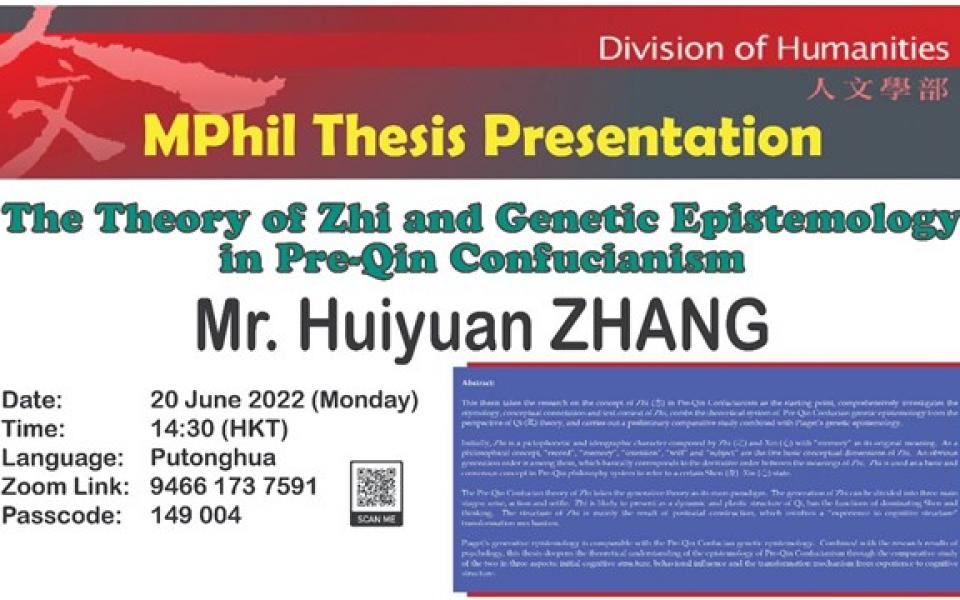Division of Humanities - MPhil Thesis Presentation - The Theory of Zhi and Genetic Epistemology in Pre-Qin Confucianism
Mr. Huiyuan ZHANG
Abstract:
This thesis takes the research on the concept of Zhi (志) in Pre-Qin Confucianism as the starting point, comprehensively investigates the etymology, conceptual connotation and text context of Zhi, combs the theoretical system of Pre-Qin Confucian genetic epistemology from the perspective of Qi (氣) theory, and carries out a preliminary comparative study combined with Piaget’s genetic epistemology.
Initially, Zhi is a pictophonetic and ideographic character composed by Zhi (之) and Xin (心) with “memory” as its original meaning. As a philosophical concept, “record”, “memory”, “intention”, “will” and “subject” are the five basic conceptual dimensions of Zhi. An obvious generation order is among them, which basically corresponds to the derivative order between the meanings of Zhi. Zhi is used as a basic and consensus concept in Pre-Qin philosophy system to refer to a certain Shen (身) -Xin (心) state.
The Pre-Qin Confucian theory of Zhi takes the generative theory as its main paradigm. The generation of Zhi can be divided into three main stages: arise, action and settle. Zhi is likely to present as a dynamic and plastic structure of Qi, has the functions of dominating Shen and thinking. The structure of Zhi is mainly the result of postnatal construction, which involves a “experience to cognitive structure” transformation mechanism.
Piaget’s generative epistemology is comparable with the Pre-Qin Confucian genetic epistemology. Combined with the research results of psychology, this thesis deepens the theoretical understanding of the epistemology of Pre-Qin Confucianism through the comparative study of the two in three aspects: initial cognitive structure, behavioral influence and the transformation mechanism from experience to cognitive structure.
